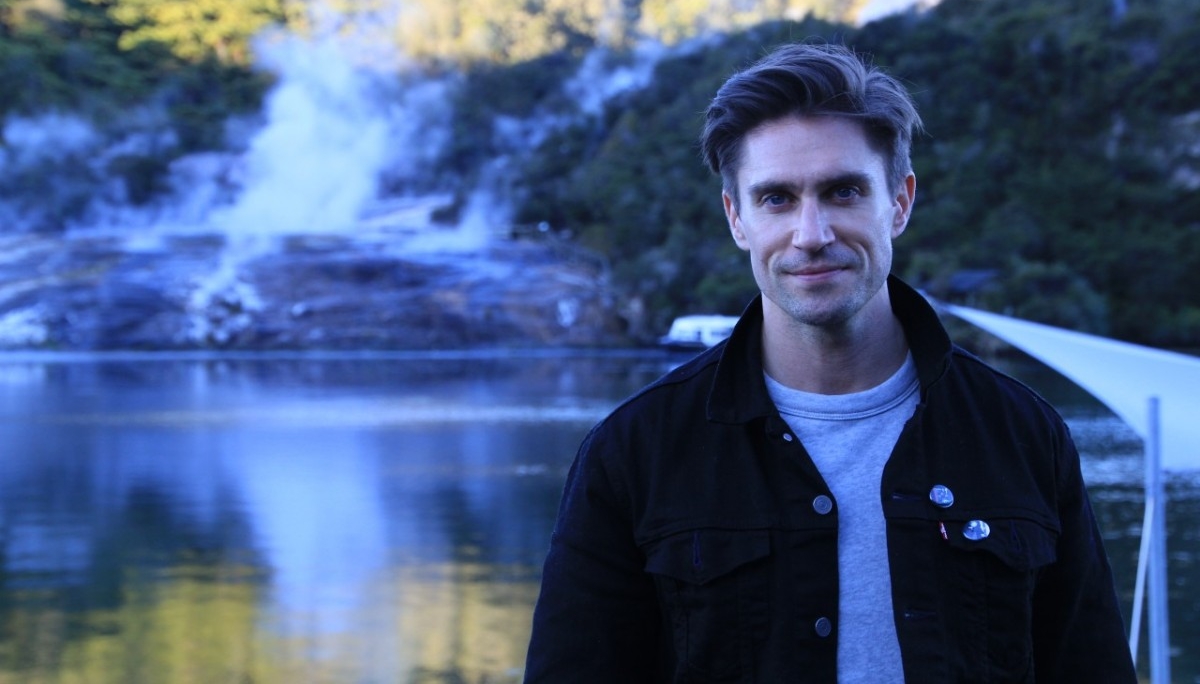“I read it when I was about fourteen at my grandparent’s house,” Icke explains, his words coming in a torrent. “They hated kids, so when I went out to stay with them they gave me books to read, and that was one of the ones I just happened to pick up off the shelf. I loved it the first time I read it, but I don’t think I sort of understood the depths it had. But I enjoyed the chronological story, I was really drawn to the dystopia. It led me to other dystopian stories, like Brave New World, and We by Yevgeny Zamyatin, which was a precursor to 1984 and is absolutely, totally brilliant. But it’s funny, we’ve been looking at things like The Hunger Games and Divergent, all those young adult books that are being turned into these massive movies, and it does seem that there is a resurgence of interest in dystopian worlds. I suspect partly as a way of coming to terms with where we are now in the world.”
Although sixty-six years have passed since 1984 was published, this interest – perhaps even, it may be argued, the necessity – with dystopian and apocalyptic literature is as strong as ever. Across the aforementioned blockbusters, and novels such as The Road and Station 11, our anxieties, hopes and cynicisms have been given especially vibrant life. With an audience so attuned to the genre, and a text of such familiarity, the challenge then becomes not only how to stage a story of special renown, but why.
“I guess our main aim was to question its cultural significance. I’m inherently sort of nervous of something that has become so [widely celebrated]. 1984 is the book that most people have said they’ve read when they’ve actually never picked it up. So much of it has been sucked into our vernacular, we even describe things as being Orwellian now when you look around and see so many security cameras everywhere. So I guess rather than ask why are we celebrating the cultural significance, it’s more about questioning why it has become so promoted, what exactly is it that the novel taps into?
“Because it’s about so much more than the ‘predictions’ that many people talk about,” he continues. “The prevalence of screens and so on. There’s so much more going on. It’s very much about reality, and how very subjective it is. About the filters through which we see the world and how much can be trusted, who controls the flow of information. There have been a great many academic papers on the use of the English language, and a lot of it suggests if you can control the way people express themselves, the way they talk about thought and idea, you can limit the way they think altogether. So there’s a lot going on in the story. It’s been really interesting hearing people talk about what they expected, and what they got. Even myself, having read the novel back at fourteen, found it was completely not what I was expecting.”
Icke’s excitement at this production is understandable. The Melbourne Festival will be the production’s Australian debut, after enjoying great success on the West End. The transition of Orwell’s disquieting novel of imagination, love, paranoia and control into the theatre has thus far been met with a rapturous reception, and as much as there is a secret to the play’s strengths, Icke believes it lies in fidelity to the source. Crucially, this includes a profound detail of the novel that many readers miss altogether.
“There’s a footnote on page four, which says, ‘Newspeak was the official language of Oceania. For an account of its structure and etymology, see appendix.’ Which is odd, to suddenly find this fusty moment of academia about the language of Newspeak, but when you explore that, you see a very different angle for the book. It’s talking about Big Brother, The Party all in the past tense. So we have the end of the novel, which sees The Party win and Winston lose, but we then go on to see that actually, Big Brother loses. The book is riddled with inconsistencies. Winston has these constant false memories, so many of the characters seem unreliable. And then you yourself turn the last page of the novel, and here’s this appendix saying, ‘actually, everything we told you about The Party and Winston was wrong. Newspeak is not the official language of Oceania anymore, we’re living in a world that has moved past that.’ It makes you wonder, what has this novel become? It’s like a cultural artefact from an imagined future. What it does best is to have you question what you’re seeing, question how far you’ll believe the information you’re hearing. I think that is what sits at the heart of the novel.”
BY ADAM NORRIS

